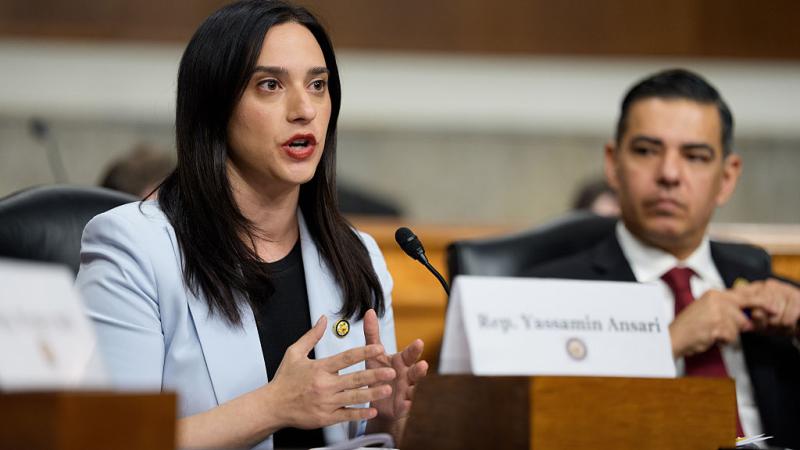As Musk tussles with SEC over tweets, single mom asks SCOTUS to review agency's in-house judges
SEC admits it violated its own rules — and perhaps the law — in cases including Michelle Cochran's.
The Securities and Exchange Commission's vast authority may be best known from its legal efforts to clamp down on Tesla CEO Elon Musk's tweets.
But little-noticed constitutional challenges against federal agencies' adjudication powers may have bigger effects than the billionaire would-be rapper's First Amendment challenge to the consent decree the SEC allegedly coerced him to sign in response to his marijuana joke.
The separation-of-powers litigation targets the administrative law judge (ALJ) system that lets the feds both prosecute defendants and judge them in-house, allegedly favoring the agencies that pay the judges' salaries and give them near-total protection against removal.
The Supreme Court struck down the SEC's practice of commission staff hiring ALJs in 2018, ruling they are "inferior officers" who must be appointed by the president or department head, but left open whether their removal is also governed by the appointments clause.
Plaintiffs must first overcome a different hurdle: convincing the high court they can challenge the ALJ system in lower courts.
The full 5th U.S. Circuit Court of Appeals created a circuit split when it ruled in December that certified public accountant Michelle Cochran can challenge the SEC's system "before a real Article III federal court rather than be subjected to an endless series of unlawful agency hearings," her lawyers at the New Civil Liberties Alliance (NCLA) said at the time.
The SEC's admission last week may help Cochran's chances at SCOTUS. The agency said it violated its own rules and possibly the Administrative Procedure Act (APA) in two cases, including Cochran's, when enforcement staff accessed documents prepared by adjudication staff.
What the agency euphemistically called a "control deficiency" is "actually an outrageous breach of ethics — and possibly law — by the Commission," NCLA said in a press release.
The violation "illustrates why the Constitution forbids housing prosecutorial functions and adjudicatory functions in a single agency," the public interest law firm said. It filed the SEC statement as an exhibit in the lawsuit.
The SEC declined to respond to NCLA's characterization, simply directing Just the News to its statement.
Lawyer Robert Johnson of the Institute for Justice, which is pursuing a similar legal challenge against the Labor Department's ALJs on behalf of fined farmers, told Just the News the SEC's own footnotes suggest it knows the breach was serious. The agency statement said the APA prohibits "ex parte communications in formal agency adjudications."
This situation would be "far less likely to arise if these cases were heard in the Article III courts, as the Constitution requires," Johnson wrote in an email. "[W]e should not be surprised" by such communications when a single agency runs the entire proceeding.
IJ filed its opening brief for the farmers in February and is expecting the feds' response in court this week, he said.
Cochran, a single mother, represented herself before an ALJ in 2016 on accusations of aiding and abetting wrongdoing at her former firm. The SEC flipped her boss to testify against her, and the ALJ routinely told defendants "he had never ruled against the agency’s enforcement division," The Wall Street Journal reported in 2015.
The in-house judge fined Cochran $22,500 and barred her from practice before the agency for five years. After the SCOTUS reversal in 2018, the agency gave Cochran a new proceeding with an ALJ who had been properly appointed but still retained strong civil service protections against removal.
She's now arguing these "layers of good-cause tenure” protection, overseen by a Merit Systems Protection Board whose members can only be removed by the president for "inefficiency, neglect of duty, or malfeasance in office," continue to make ALJ proceedings unconstitutional.
The SEC asked SCOTUS to review the 5th Circuit decision March 11 but asked the justices to first decide Axon, a similar case about the Federal Trade Commission's ALJ system, which the SEC calls "materially identical" to its own.
This fall the high court is scheduled to review whether Congress "impliedly" stripped federal district courts of jurisdiction over FTC procedures, but declined to scrutinize the "dual-layer for-cause removal protections" of the FTC's ALJs.
NCLA responded March 29 that Cochran and "hundreds" of others "embroiled in financially, professionally, reputationally, and personally ruinous SEC administrative proceedings" can't wait for an answer to Axon.
The circuit split "has arisen in the SEC context" over the meaning of the Securities Exchange Act, and it won't necessarily be resolved by an FTC case, the NCLA said. Last year, SCOTUS refused to consider its challenge to the SEC's ALJ system on behalf of an earlier client.
The SEC won an earlier challenge to another longstanding agency practice: mandatory gag orders as a condition of settlement.
IJ filed suit on behalf of the libertarian Cato Institute, which wanted to publish a book by an "American businessman who says he was the victim of egregious government overreach" by the SEC, but the gag order would make that illegal. Last summer, the U.S. Court of Appeals for the D.C. Circuit upheld a trial court's dismissal of the suit on standing grounds.
The Facts Inside Our Reporter's Notebook
Documents
Videos
Links
- billionaire would-be rapper's First Amendment challenge
- marijuana joke
- "inferior officers" who must be appointed
- 5th U.S. Circuit Court of Appeals created a circuit split
- New Civil Liberties Alliance (NCLA) said
- violated its own rules
- exhibit
- similar legal challenge against the Labor Department's ALJs
- The SEC flipped her boss to testify against her
- The Wall Street Journal
- SEC asked SCOTUS to review the 5th Circuit decision
- whether Congress "impliedly" stripped federal district courts
- NCLA responded March 29
- SCOTUS refused to consider its challenge
- IJ filed suit on behalf of the libertarian Cato Institute















